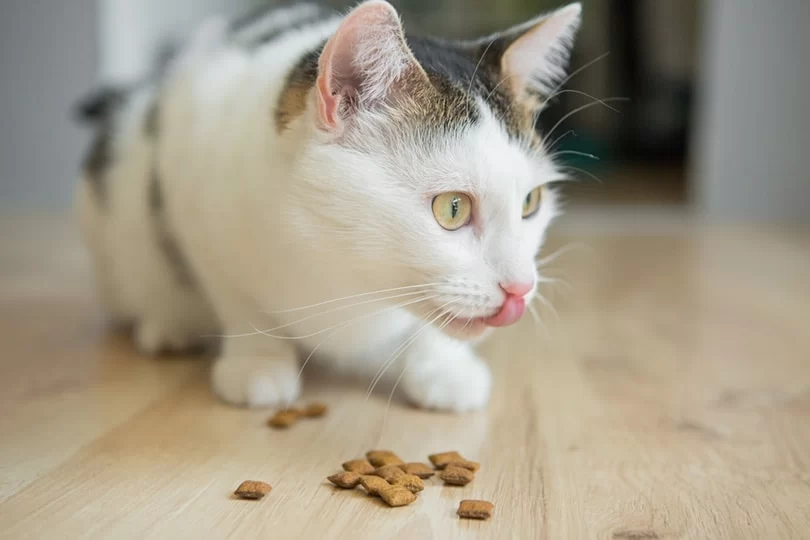- 1. Understanding Picky Eating in Cats
- 2. Key Ingredients for Homemade Cat Treats
- 3. Step-by-Step Recipes for Picky Eaters
- 4. Tips for Encouraging Picky Cats to Eat Homemade Treats
- 5. Professional Advice and Where to Find the Best Products
1. Understanding Picky Eating in Cats
Cats are known for being finicky eaters, and many pet owners struggle with feeding picky cats who refuse to eat most commercial treats or foods. This behavior can stem from a variety of factors, including texture preferences, scent sensitivity, or even health issues that affect appetite. Understanding why your cat is selective helps in crafting homemade cat treats that are not only nutritious but appealing to their individual tastes.
Often, cats are sensitive to artificial flavors or preservatives found in store-bought treats, making homemade options a healthier and more enticing alternative. Moreover, preparing treats at home allows control over ingredient quality, ensuring that only natural and safe components are included.
2. Key Ingredients for Homemade Cat Treats
Choosing the right ingredients is crucial when making homemade cat treats for picky eaters. Cats are obligate carnivores, meaning their diet should be rich in animal protein. Ingredients like cooked chicken, tuna, salmon, or turkey are often favorites among even the pickiest cats.
2.1 Protein Sources
High-quality proteins provide essential amino acids and help maintain your cat’s health. Using fresh, unseasoned meats or fish in treats guarantees a natural flavor that cats tend to prefer.
2.2 Texture and Binding Agents
Many picky cats are sensitive to texture. Adding small amounts of ingredients like oat flour, egg, or pumpkin puree can help create treats with a pleasing consistency without compromising nutrition.
2.3 Avoiding Harmful Ingredients
It’s important to avoid onions, garlic, excessive salt, and artificial sweeteners when preparing homemade treats. These can be toxic or harmful to cats.
3. Step-by-Step Recipes for Picky Eaters
Here are two simple, proven recipes that have delighted many picky cats and can be easily prepared at home.
3.1 Chicken and Tuna Treats
Ingredients:
- 1/2 cup cooked chicken breast, shredded
- 1/4 cup canned tuna in water, drained
- 1 egg
- 2 tablespoons oat flour
Instructions:
- Preheat the oven to 350°F (175°C).
- Mix shredded chicken, tuna, egg, and oat flour in a bowl until combined into a dough-like texture.
- Form small bite-sized balls or flatten into thin discs on a baking sheet lined with parchment paper.
- Bake for 10-12 minutes until firm but not too hard.
- Let cool before serving.
3.2 Salmon and Pumpkin Bites
Ingredients:
- 1/2 cup cooked salmon, flaked
- 2 tablespoons canned pumpkin puree (unsweetened)
- 1 egg
- 3 tablespoons oat flour
Instructions:
- Preheat oven to 350°F (175°C).
- Mix salmon, pumpkin puree, egg, and oat flour to form a consistent dough.
- Shape into small bites or spread thinly on a baking sheet.
- Bake for 10-15 minutes, ensuring treats are dry but not too crunchy.
- Allow to cool completely before offering to your cat.
4. Tips for Encouraging Picky Cats to Eat Homemade Treats
Introducing new treats to picky cats requires patience and strategy. Here are some tips that help increase acceptance:
4.1 Gradual Introduction
Mix small amounts of the homemade treats with your cat’s regular food initially. This familiarizes their palate with the new flavors slowly.
4.2 Positive Reinforcement
Use treats as rewards during playtime or training sessions. This positive association encourages cats to try and enjoy the treats.
4.3 Experiment with Textures
Some cats prefer softer treats while others enjoy a bit of crunch. Vary baking times or ingredient ratios to find the texture your cat prefers.
5. Professional Advice and Where to Find the Best Products
While homemade cat treats offer great control over nutrition and taste, consulting a veterinarian can help ensure your cat’s dietary needs are fully met. Hidden Brook Veterinary provides expert guidance and a variety of high-quality products tailored to picky eaters’ needs. Their advice can help you balance treats with a healthy diet and select supplements if necessary.
Many cat owners have found that combining homemade treats with professional recommendations results in happier, healthier cats with more enthusiastic appetites.












